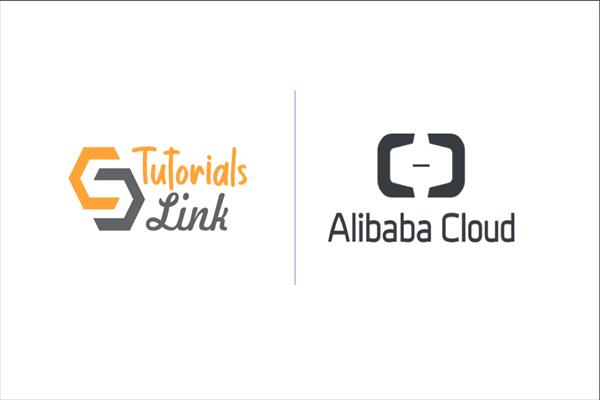Implementing DevOps Practices with Alibaba Cloud
DevOps has revolutionized the way organizations approach software development and operations, fostering a culture of collaboration and continuous improvement. Alibaba Cloud, one of the leading cloud service providers, offers a comprehensive suite of tools and services to support DevOps methodologies. This guide delves into how you can integrate DevOps practices using Alibaba Cloud, detailing tools, methodologies, and actionable steps to get started.
What is DevOps?
DevOps is a combination of cultural philosophies, practices, and tools that enhance an organization’s ability to deliver applications and services rapidly. By breaking down silos between development and operations teams, DevOps aims to:
- Increase deployment frequency.
- Reduce the failure rate of new releases.
- Improve mean time to recovery (MTTR).
As Gene Kim, co-author of The Phoenix Project, puts it: “DevOps is not about tools, it’s about building a culture where people can collaborate effectively.”
Why Choose Alibaba Cloud for DevOps?
Alibaba Cloud provides a robust platform for implementing DevOps practices. Its rich ecosystem includes services for continuous integration/continuous deployment (CI/CD), container orchestration, monitoring, and more. Key advantages include:
- Global Infrastructure: Extensive network coverage and data centers worldwide.
- Scalability: Flexible resources to scale applications seamlessly.
- Integration: Compatibility with popular DevOps tools like Jenkins, Git, and Kubernetes.
- Cost-Effectiveness: Pay-as-you-go model with competitive pricing.
Core Alibaba Cloud Services for DevOps
1. Container Service for Kubernetes (ACK)
ACK is a fully managed Kubernetes service that simplifies container orchestration. It integrates with other Alibaba Cloud services like CloudMonitor and Log Service for monitoring and logging.
2. Elastic Compute Service (ECS)
ECS provides scalable virtual servers for running applications and workloads. It supports various operating systems and is ideal for hosting CI/CD pipelines and development environments.
3. Resource Orchestration Service (ROS)
ROS allows you to automate infrastructure deployment using templates, promoting infrastructure as code (IaC).
4. CloudMonitor
CloudMonitor offers real-time metrics, alarms, and notifications for your infrastructure and applications, ensuring you stay on top of performance and availability.
5. Log Service
This service collects and analyzes logs from various sources, enabling efficient debugging and monitoring.
6. ApsaraDB
Alibaba Cloud’s database service supports relational and NoSQL databases, providing high availability and scalability.
Step-by-Step Guide to Implement DevOps with Alibaba Cloud
Step 1: Set Up a Collaborative Development Environment
- Use Alibaba Cloud’s ECS to host repositories and development tools like GitLab or GitHub Enterprise.
- Configure a CI/CD pipeline using Jenkins or Alibaba Cloud’s native tools.
Example: Setting up Jenkins on ECS
# Update package repository
sudo apt update
# Install Java (required for Jenkins)
sudo apt install -y openjdk-11-jdk
# Add Jenkins repository and key
wget -q -O - https://pkg.jenkins.io/debian/jenkins.io.key | sudo apt-key add -
sudo sh -c 'echo deb http://pkg.jenkins.io/debian-stable binary/ > /etc/apt/sources.list.d/jenkins.list'
# Install Jenkins
sudo apt update
sudo apt install -y jenkins
# Start Jenkins
sudo systemctl start jenkins
# Open firewall for Jenkins (port 8080)
sudo ufw allow 8080
After installation, access Jenkins at http://<your-ecs-ip>:8080 and configure the CI/CD pipeline.
Step 2: Automate Infrastructure Deployment with ROS
Infrastructure as Code (IaC) ensures consistency and repeatability. Use ROS to define and manage your infrastructure.
Example ROS Template
ROSTemplateFormatVersion: '2015-09-01'
Resources:
MyECSInstance:
Type: 'ALIYUN::ECS::Instance'
Properties:
InstanceType: ecs.t5-lc2m1.nano
ImageId: ubuntu_20_04_x64_20G_alibase_20220930.vhd
SecurityGroupId: sg-12345678
VSwitchId: vsw-12345678
InstanceName: MyDevOpsInstance
Deploy the template using the Alibaba Cloud CLI:
aliyun ros CreateStack --RegionId <region> --TemplateBody file://template.yaml
Step 3: Enable Continuous Integration and Continuous Deployment
CI/CD pipelines automate the build, test, and deployment processes, reducing manual effort and errors.
- CI: Use Jenkins, GitLab CI, or ACK for automated builds and testing.
- CD: Integrate with ACK to deploy applications as containers.
Example: CI/CD Workflow
- Developer pushes code to Git.
- Jenkins pulls the code, runs tests, and builds the application.
- On successful build, Jenkins deploys the container image to ACK.
Step 4: Implement Monitoring and Logging
- Monitoring: Use CloudMonitor to track metrics such as CPU usage, memory, and network traffic.
- Logging: Configure Log Service to collect application logs for debugging and analysis.
Example: Setting Up Application Monitoring
- Navigate to the CloudMonitor console.
- Create a custom dashboard to visualize metrics.
- Set up alerts for critical thresholds.
Step 5: Optimize Security and Compliance
- Use Alibaba Cloud’s ActionTrail to monitor user activity and API usage.
- Implement RAM (Resource Access Management) for granular access control.
Best Practices for Security:
- Regularly update and patch your ECS instances.
- Use RAM roles for temporary access.
- Encrypt sensitive data using Alibaba Cloud KMS.
Real-World Use Case: Accelerating Deployment with ACK
Scenario: A fintech startup needs to deploy updates frequently without downtime.
Solution:
- Use ACK for containerized deployment.
- Set up a Jenkins pipeline for automated builds and deployments.
- Monitor performance using CloudMonitor and Log Service.
Outcome: Deployment frequency increased by 40%, and downtime reduced to near zero.
Challenges and Solutions
Challenge 1: Integration with Existing Tools
- Solution: Alibaba Cloud’s extensive APIs and SDKs enable seamless integration with tools like Terraform and Ansible.
Challenge 2: Managing Scalability
- Solution: Leverage auto-scaling groups in ECS and ACK to handle variable workloads.
Challenge 3: Ensuring Compliance
- Solution: Use ActionTrail and Security Center for real-time auditing and compliance checks.
Conclusion
Implementing DevOps practices with Alibaba Cloud empowers organizations to innovate faster and maintain high reliability. By leveraging services like ACK, ROS, and CloudMonitor, you can build a scalable, efficient, and secure DevOps ecosystem. As Jez Humble, co-author of Continuous Delivery, says: “The goal of continuous delivery is to make deployments—whether of a large-scale distributed system, a complex production environment, an embedded system, or an app—predictable, routine affairs that can be performed on demand.”
Start your DevOps journey with Alibaba Cloud today and unlock the full potential of your development and operations teams.





